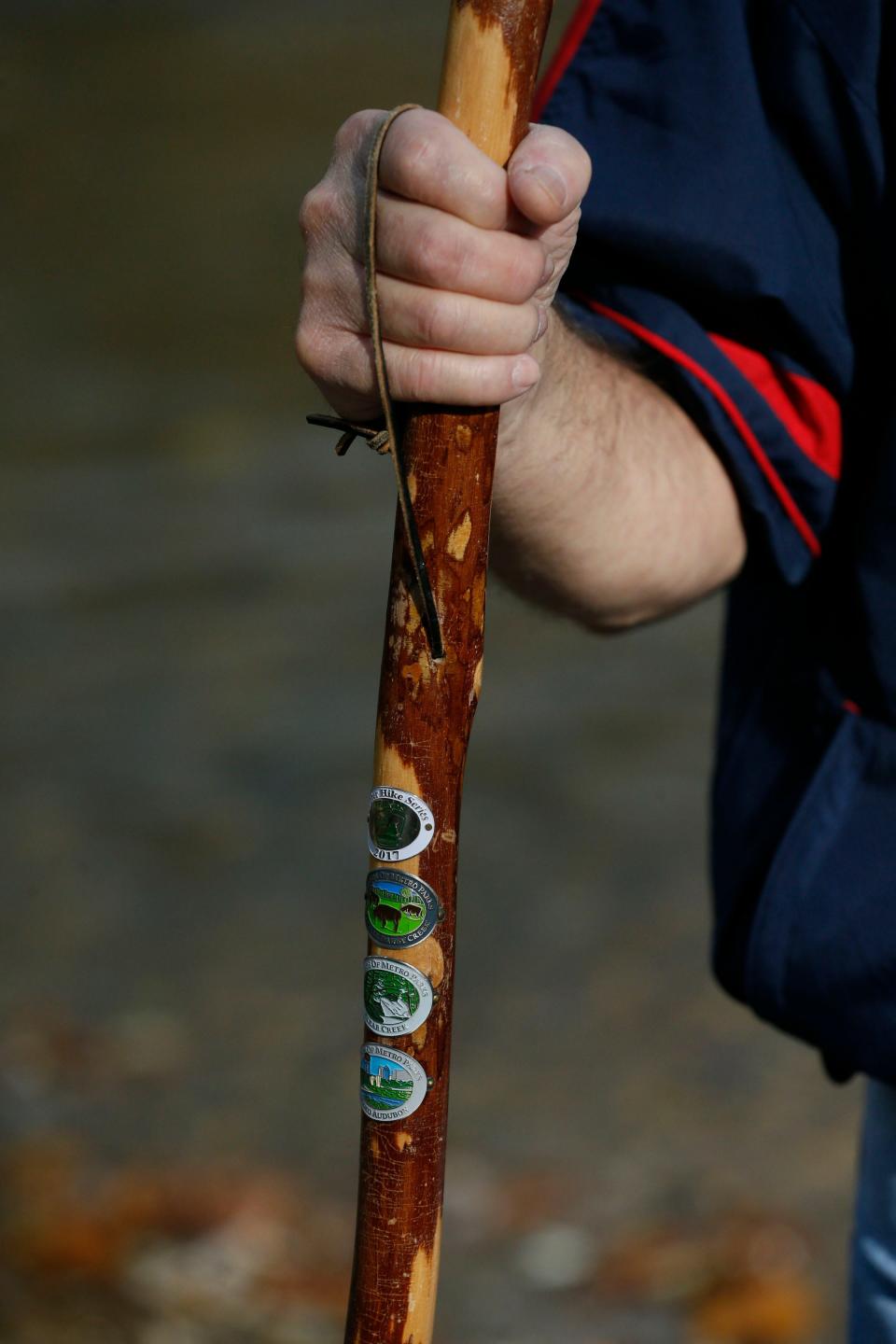Master Gardener: Nature walks can relieve stress

Science is showing how immersion in nature can speed healing and act as an antidote for many ailments. Last year I participated in a nature walk. I was able to stop and take a different look at the trees around me. I listened to the sounds and wondered at the sights. It was truly refreshing.
Nature can provide you with relief from the stress of a major life transition. The exercise, combined with the beautiful scenery, is a daily dose of soothing comfort. Gazing at the huge trees reminded me of the many winter storms and changes they’ve weathered during their lifetime. Seeing a red-tailed hawk will provide thought of the need for a “bird’s-eye view” for a broader perspective of your own circumstances. Witnessing the vegetation, ants, butterflies, and squirrels will mirror that life is constantly evolving and adapting over time.
The wilderness will give a place to reflect, discern, plan, and exhale from the stress of the personal changes taking place. Taking the time to stop and look closely at the insects, the flowers, rocks, and leaves will show you how life is constantly unfolding around us. This is a beautiful way to celebrate nature.
Nature can be inspiring
Nature serves as a refuge to inspire, reflect, and heal. Studies reveal that being in nature has a powerful positive effect on the mind, body, and spirit. The statistics on the health benefits for kids of being in nature are remarkable and, in many ways, not surprising. Outdoor activities increase physical fitness, raise levels of vitamin D and improve distance vision. Being in nature reduces ADHD symptoms. Schools with outdoor education programs help students score higher in standardized tests and improve their critical thinking skills. Nature also reduces stress levels and enhances social interactions among children.

These benefits also translate to adults. In adults, studies show that being in nature will speed the health recovery process, reduce blood pressure and lower the risk of cancer as well as lift people’s spirits. In a classic study performed in a suburban Pennsylvania hospital between 1972 and 1981, patients who had a window view of deciduous trees healed from surgery much faster than those who viewed a brick wall. The patients with a nature view also received fewer negative evaluations from their nurses and took fewer pain injections.
High blood pressure, which affects one in three Americans, costs the U.S. more than $48 billion a year. A recent study, however, shows that adults can reduce their blood pressure by simply spending 30 minutes or more a week walking in a park. In a study looking at the link between nature and cancer, people who took two long walks in nature over two consecutive days had an increase in their cancer-fighting cells, known as NK cells, of 50% and an increase in the activity of these cells by 56%. In addition, the activity levels of the cells remained high for a month. These studies highlight the numerous ways that simply getting outdoors will benefit us psychologically and physically. These are scientific figures, not mine.
Japan promotes 'forest bathing' for preventative health care
Some of the most interesting research on the connection between health and nature is coming from Japan. Walking and spending time in forests, known as shinrin-yoku, or forest bathing, is a popular form of preventive health care in Japan. Studies are now proving the health benefits of spending time in forests. Yoshifumi Miyazaki from Chiba University, Japan, discovered that going for a 40-minute walk in a cedar forest lowers the level of cortisol, a stress hormone, as well as blood pressure and supports the immune system more than a similar 40-minute walk indoors in a lab.
Qing Li from Nippon Medical School in Tokyo has shown that trees and plants emit compounds known as phytoncides that when inhaled give us therapeutic benefits akin to aromatherapy. Phytoncides also change the blood composition, which impacts our protection against cancer, boosts our immune system and lowers our blood pressure. Toledo Metroparks has taken a lead in these forest walks.
Experiencing nature not only reduces stress but also improves our cognitive ability. Gregory Bratman from Stanford University and his colleagues enlisted 60 participants who were randomly divided into two groups: The first group took a 50-minute “nature” walk surrounded by trees and vegetation, and the second group took an “urban” walk along a high-traffic roadway. The nature walkers showed cognitive benefits including an increase in working memory performance, “decreased anxiety, rumination, and negative affect, and preservation of positive affect.” Just more proof that walking in the forest is very beneficial.
So why not dig your walking shoes from the closet and start a weekly or daily routine of your own?
Susan La Fountaine is a Master Gardener with the Extension Offices in Sandusky and Ottawa Counties.
This article originally appeared on Fremont News-Messenger: Master Gardener: Nature walks can relieve stress

